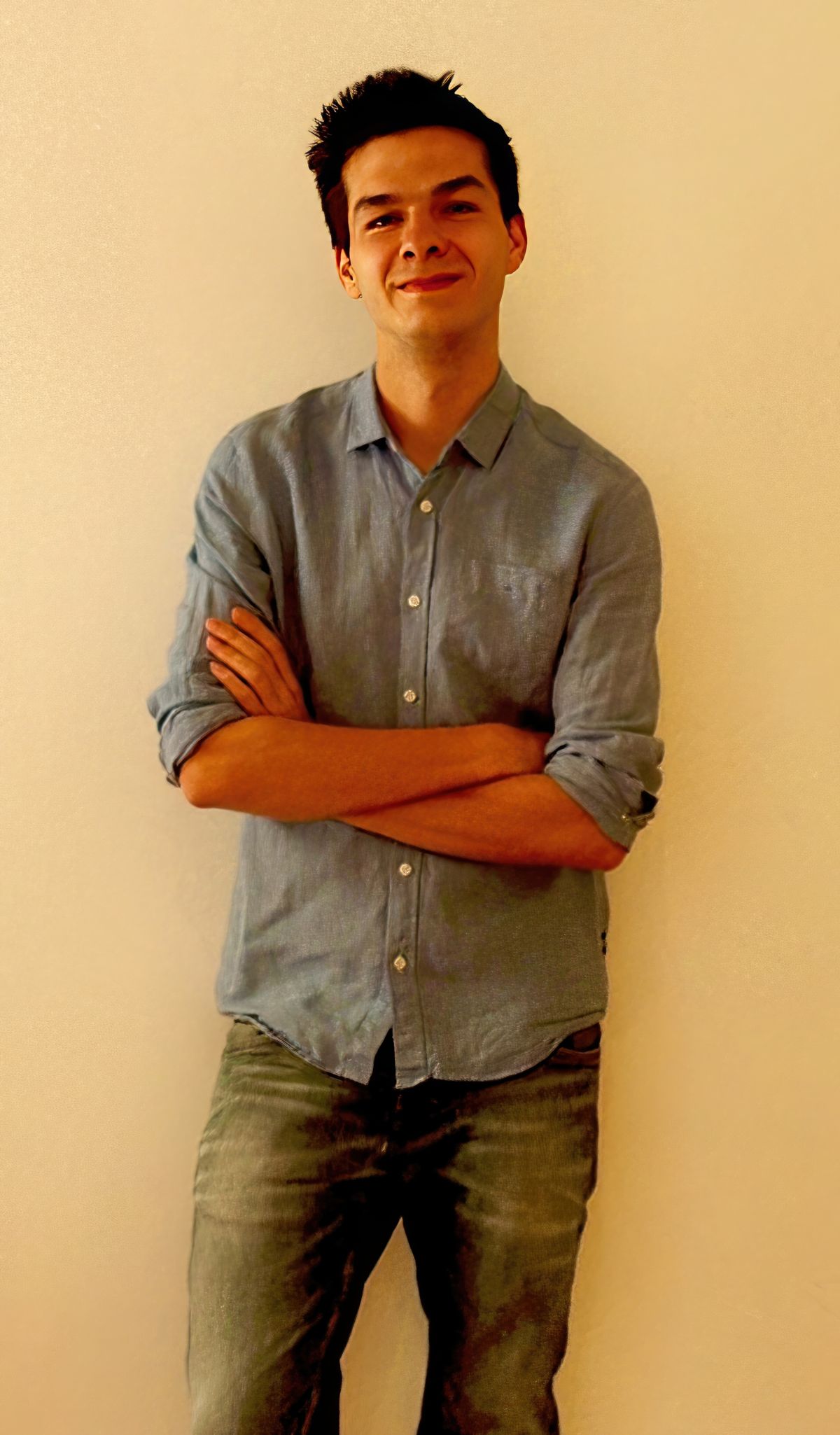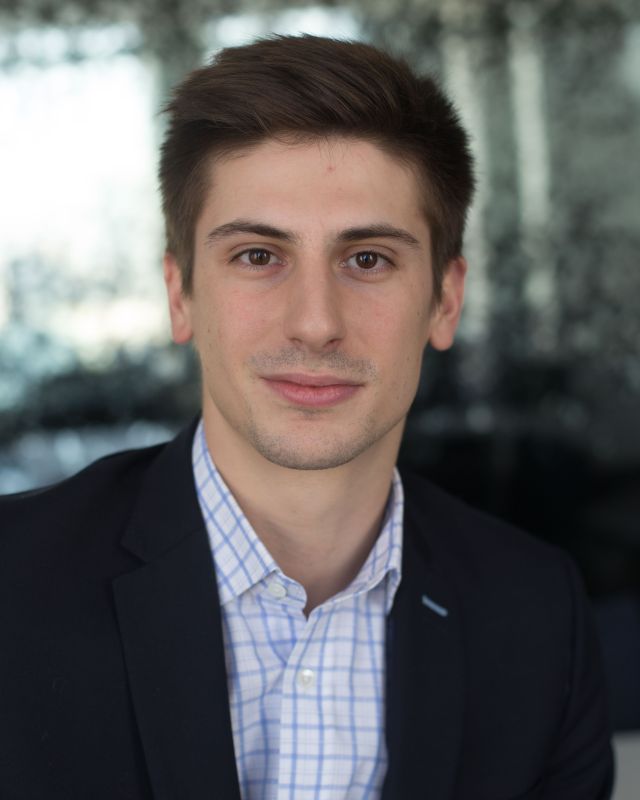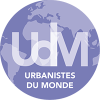Portrait

Simon de Bergh - STU 2016 - Urban Planning Agency of Marseille
Published on | Alumni Portraits
Portrait created by Marion Bigay
Before entering the STU master's programme, you attend the Sciences Po university college. How do you make your choice of master's?
My choice of master was relatively straightforward as I knew from the beginning what I wanted to do. Indeed, when I entered the university college, I was already interested in urban planning. This is partly why I chose to pursue a geography degree at the Sorbonne alongside my studies at the university college.
In your third year, you go to Colombia to take courses in urban management and development, a way to affirm your chosen direction?
Indeed, the third year was a great opportunity to progress in my orientation choices. The programme I attended at the University of Bogotá was quite similar to that offered in STU, although the issues faced by Colombian cities led me to confront challenges that were considerably different from those in French contexts (community development, informality, mega-projects, "social urbanism"...).
In addition to confirming my interest in urban planning, this year has also allowed me to broaden my horizons. At the start of the academic year, I naturally integrated into STU.
For your final internship, you wanted to go to Peru
Yes, I was supposed to undertake an internship in Lima with a public water management authority, but I had to cancel shortly before departure due to a visa issue. As a result, I had to start looking for an internship quite late in the year, which wasn't particularly easy. I eventually joined a sub-prefecture in a rural area, in the Hautes-Pyrénées.
On one hand, I discovered an environment in which I would never have spontaneously sought an internship or employment. On the other hand, as I was in a relatively small organisation, I was entrusted with more responsibilities than I might have expected elsewhere.
The mission involved promoting, together with a local authority, an economic recovery strategy. What levers should be activated to revitalise a medium-sized declining city (Lourdes), whose historical specificity (the pilgrimage economy) has isolated it from the surrounding mountainous areas and the industrial basin of Tarbes? After a quick diagnosis, it was necessary to form a committee of experts in connection with territorial stakeholders, identify the levers to mobilise, and develop action plans for the short, medium, and long term. It was not easy, but very stimulating.
It is not often mentioned in STU, but there are truly compelling work topics in rural areas.
After graduating, you continue to focus on declining cities with a four-month mission in Guinea
I didn’t actively seek to delve deeper into this theme. In fact, it was a former STU professor who proposed that I collaborate with him on a study mission in Fria, Guinea. I decided to seize the opportunity and thus worked on a declining city. However, the situation was nothing like my internship in the Pyrénées.
In Guinea, as in several African countries, entire cities have sometimes been created from scratch to meet the needs of the extractive industry, often mining. In Fria, the factory in question, which sustained the city for 40 years (now with 50,000 inhabitants), abruptly closed two and a half years ago. The senior executives literally abandoned the city – the bauxite extraction was no longer profitable – and abruptly ceased offering jobs. Essentially, overnight, the management abandoned the site. They left everything behind. This obviously had disastrous consequences for the city since its entire economy, as well as its overall functioning, depended on the factory. Public services were managed by the factory. Schools, roads, lighting, all operated thanks to subsidies, outsourcing, or even direct management.
In such cases, there is generally a lawsuit against the executives or the company that abandoned the site, but justice requires tangible elements. The legal actions are very political and rarely succeed due to the imbalance of power. The mission of the research centre I worked for was therefore to objectify the impact of the abandonment on the overall functioning and on each service of the city. It was really interesting! The ultimate goal was to enhance the skills of local NGOs on mining issues, so that they could produce arguments advocating for the cause of the friakas before the government.
Upon returning, you search for work and land at the urban planning agency in Marseille
It’s not quite automatic, but it’s essentially that. In November-December, I began looking for a job in an urban planning agency.
There are around fifty urban planning agencies in France; they come in two types: the majority are small (often employing fifteen to twenty people), but there are also ten to twelve "large" agencies (between fifty and eighty-five people). Their operation is therefore quite different, as is their personnel management.
The small agencies choose their missions from those that can be assigned to an urban planning agency based on the needs of the territory and their capacities. This is the case, for example, of the urban planning agency of Rouen, which the M1 students of STU met this year. A typical STU profile, quite generalist, is not the most likely to interest them. As they have few staff, they prefer to recruit urban planners, economists, and “multi-skilled” housing specialists, capable of working across several domains.
In contrast, the larger agencies have broader missions, employ more staff, can oversee large-scale initiatives (PLUi in particular), and are more likely to be interested in generalist profiles. In Marseille, for instance, there are two of us directly under the management, conducting more cross-cutting studies. Generally, agencies are closely linked to the local authorities that are members of their Board of Directors (they are associations!), and the intensity of this link often depends on the budget contribution from each partner (e.g.: municipality, intercommunal authority, State and regional agencies, departments, consular chambers, university…). They typically operate in all possible areas (housing, economy, city policy, planning, urban projects, mobility, environment…), doing a bit of everything, depending on what is expected from the partners and what the agency considers important. It can involve internal work within the territory, but also at larger scales, such as relations with immediate neighbours or international cooperation. The risk, which one must be cautious of, is that these agencies do not become an auxiliary service of the local authority. We remain partners, indeed close ones, but with independence in our outputs, framed by an annual convention.
So what are the concrete missions of the urban planning agency? What do you do on a daily basis?
While the agency undertakes a wide variety of missions, there are three that constitute the bulk of my work.
The first mission is to facilitate cross-functionality when others no longer have the means (or the time) to do so. Generally, communication within an urban planning agency is much quicker than between the services of the same local authority with which it works. Therefore, part of the job consists of staying informed about what is happening in the territory and reusing what we have learned, in a cross-cutting manner, in all our work. For example, transport and environment are two themes that cannot be treated in silos. Yet, within a certain local authority, the person in charge of transport and the one in charge of the environment may not necessarily speak to each other. Within the agency, however, those responsible for these two areas can exchange information more easily. It’s much simpler with 70 people than with the 7000 staff of the Metropolis! Consequently, the agency often acts as a bridge facilitating the flow of information and public policy elements from one service to another within the same local authority! One part of my work thus consists of keeping informed.
However, the primary purpose of an agency is territorial observation, which means producing studies, maps, data, and so on. One must be able to write and produce within a short timeframe. The goal is to illuminate the partner local authority in its decision-making. The local authority has expectations, but the agency can also be a source of proposals. It can thus decide to work on a theme that it considers important or likely to become important. This involves a prospective exercise where we ask, “How will we live on this territory in 15 years?” It is both thrilling and frustrating. Thrilling because the issues are diverse, and there is a great freedom in research and diagnosis. Frustrating because one must be prepared to work knowing that our inquiries sometimes do not align with those of the elected officials. I am therefore involved in producing studies, primarily for the Metropolis of Aix-Marseille-Provence.
The agency also plays a role in facilitating, organising workshops and consultation processes. Local authorities are increasingly seeking participation, for example, through development councils (a citizens' assembly). At the same time, they may not necessarily have the staff or expertise to facilitate consultation exercises. Hence, members of the urban planning agency sometimes provide support on these matters.
Finally, I work on “large-scale” issues for the agency, such as regional land planning, particularly the SRADDET for the PACA region, a planning document that will impose itself on the SCOT and PLU(i) of the territories (on which other members of the agency are working). For this mission, we operate almost like a consultancy, on behalf of the Region.
Some missions are a bit reminiscent of the work of consultants
This is completely true! In some respects, the work in an urban planning agency and in a consultancy is similar. However, there are some quite distinct differences.
A consultancy offers specific expertise developed over time by responding to similar calls for proposals from various local authorities. Essentially, it works on a few domains, specific programmatic documents, facilitation tools, etc., and will sell its experience and know-how in Lille, Toulouse, or even Marseille.
In contrast, an urban planning agency is rooted in a territory. It operates with an annual programme and aims to preserve a form of territorial “memory.” We are more focused on long-term management, which necessitates remembering (or rather knowing where to search for) what was produced five years ago. This is indeed one of the aspects that particularly interests me, as it allows us to see how issues and inquiries evolve (or conversely, do not evolve!), and to provide complementary or alternative insights for public decision-making.
Finally, the relationship with the local authority is not the same either. A consultancy is a service provider for which the local authority is a client. Even though the urban planning agency receives grants from the local authority, it does not position itself in the same way: it primarily defines itself as a “partner” of the local authorities that are members of the agency, even though it is true that some may indeed view us as service providers.
In your opinion, what are the important qualities for working in an urban planning agency?
Where I am positioned, both writing skills and mastery of tools (mapping, GIS) are required. The purpose of the urban planning agency is to produce information, whether written, cartographic, or statistical. However, for a message to be well received, it is essential that it is well presented. One must be able to produce outputs that are succinct, clear, and sometimes within a short timeframe.
In my opinion, it is also very important to enjoy reading and to have a good urban culture. This is essential for working in an urban planning agency, as it allows one to quickly connect with a commission to mobilise good examples one may have heard about elsewhere. More generally, this seems important when you leave school with a profile like ours, regardless of the job you envisage holding.
Finally, I would say one needs to be tenacious in the ideas one wants to promote. I have already briefly mentioned this, but working in an urban planning agency can sometimes be very frustrating. Some elected officials for whom we work can be particularly obstinate, to put it mildly… and all the technical arguments, no matter how well constructed, encounter the multiple other constraints they have. While the urban planning agency places itself in a long-term perspective, many elected officials think in terms of their mandate and re-election. However, the most important projects to carry out are not necessarily those that are the most visible or valued in the short term by the electorate. Sometimes, I propose several solutions, one of which clearly seems better to me, but in the end, it is the elected representative or the technician at the top of the administration who makes the decision. Sometimes, one has to “swallow one’s pride,” feel alone with the impression that the dossiers one supports aren’t progressing, or that one is the only one supporting them. But if we look on the bright side, being close to the actors of a single territory allows for long-term exchanges. And there is also a significant challenge in trying to convince.
If you had one piece of advice to give to current students, what would it be?
It would be to enjoy the topics you wish to engage with in your master's work. We are always better when we produce on a theme we like. At the Urban School, you are fortunate to have often a great deal of freedom in the topics for papers, dissertations, reading notes, so take advantage of it! You may sometimes have the opportunity to revisit them at the outset of your professional life when inspiration runs dry!
It would also be to develop your urban culture by all means; walking is one. Just in the Paris region, it’s quite easy to wander around, and by taking the RER or the train, you can easily discover new areas.
Finally, it would be not to be afraid to look into what is happening in the smallest towns. It’s not just the metropolises that are waiting for you!
Sonia Lemaitre - STU 2012 - Nexity
Published on 29 March 2018
Could you give a brief overview of your career path? After completing a literary preparatory class and the STU master's programme, I joined the strategic…
Guillaume Ragon - STU 2014 - Consultant at Wavestone
Published on 27 January 2018
After attending the U College of Sciences Po, you complete the STU master’s with an internship at the Evry Centre Essonne urban community. What does this…
 English
English  Français
Français 




